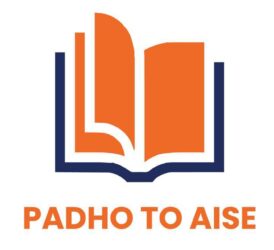SAU MA Entrance Syllabus: International Relations
At South Asian University (SAU), there isn’t an official syllabus provided specifically for the MA International Relations Entrance Exams. However, based on past examination patterns and experiences shared by students, certain topics tend to be commonly covered in the exams. While there may not be a standardized syllabus, understanding these topics can help applicants prepare effectively for the entrance exams.
Typically, questions in the MA International Relations Entrance Exams at SAU revolve around various aspects of international relations, political science, and related fields. These include theories of international relations such as realism, liberalism, and constructivism, along with historical events like the Cold War and the Non-Aligned Movement (NAM). Additionally, knowledge about regional organizations like the South Asian Association for Regional Cooperation (SAARC), the Bay of Bengal Initiative for Multi-Sectoral Technical and Economic Cooperation (BIMSTEC), and others is often tested.
Candidates should also be familiar with key concepts in political science and governance, including constitutional provisions, parliamentary systems, and electoral processes. Understanding the political dynamics of countries within the South Asian region, such as India, Pakistan, and Bangladesh, is crucial. Topics like foreign policies, bilateral relations, and geopolitical challenges are frequently included in the exams.
While SAU does not provide a specific syllabus, applicants are encouraged to stay updated with current affairs and global events, as questions related to contemporary issues, global justice, and climate change may also be asked. Additionally, a strong foundation in subjects like nationalism, socialism, and multiculturalism can be beneficial for tackling questions on broader ideological frameworks.
In summary, while SAU does not have an official syllabus for the MA International Relations Entrance Exams, prospective candidates can prepare by focusing on topics like international relations theories, historical events, regional organizations, political science concepts, and contemporary issues.
1. International Relations (IR) Theories:
Realism
Liberalism
Constructivism
Feminism
Dependency Theory
World Systems Theory
Critical Theory
Neo realism
Neo liberalism
Post structuralism
Functionalism
2. Cold War politics
3. International Organizations.
Non-Aligned Movement (NAM)
South Asian Association for Regional Cooperation (SAARC)
Questions related to SAARC Nations:
India
Nepal
Bangladesh
Pakistan
Sri Lanka
Bhutan
Maldives
Afghanistan
Bay of Bengal Initiative for Multi-Sectoral Technical and Economic Cooperation (BIMSTEC)
Indian Ocean Rim Association (IORA)
Shanghai Cooperation Organisation (SCO)
Association of Southeast Asian Nations (ASEAN)
European Union (EU)
4. Indian Polity (Not much asked).
Preamble of the Constitution
Making of the Constituent Assembly
Constitutional Provisions
Parliament
Cabinet
Prime Minister
President
Fundamental Rights
Fundamental Duties
Directive Principles of State Policy
Amendments to the Constitution
Governor
State Government
Federalism
Political Parties (National and Regional)
Judiciary
5. Miscellaneous
Global Justice
Nationalism
Climate Change
6. Political Theory
Liberalism
Socialism
Marxism
Anarchism
Post colonialism
Post modernism
Multiculturalism
7. Western Political Thought.
Plato
Aristotle
Machiavelli
Hobbes
Locke
Rousseau
Marx
Mill
John Rawls
